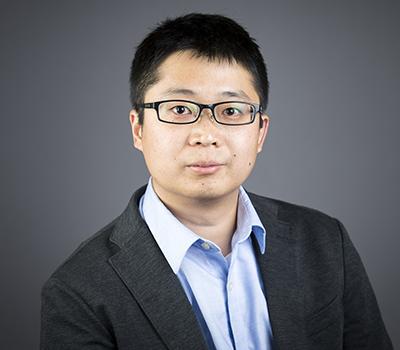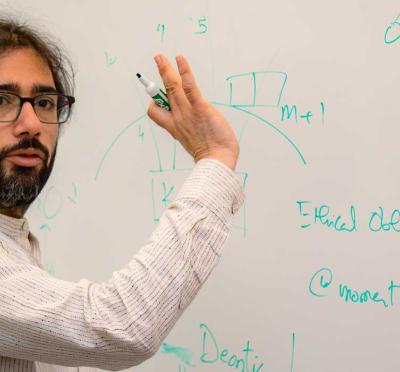Xiao Fu, assistant professor of electrical and computer engineering and artificial intelligence, has received a Faculty Early Career Development, or CAREER, award from the National Science Foundation. Fu will use his five-year, $500,000 award to develop a suite of nonlinear factor analysis tools and contribute to a deeper understanding of unsupervised machine learning and sensing systems.
Factor analysis tools are cornerstones of many sensing and learning applications, such as document analytics, hyperspectral imaging, brain signal processing, and representation learning. They’re designed to detect meaningful information hidden in large data sets, such as prominent topics within a large collection of documents.
However, many classic factor analysis models can be thwarted by phenomena known as nonlinear distortions, which frequently cause inaccurate results. To address the problem, Fu must first establish a deeper theoretical understanding of the so-called nonlinear factor analysis models, which are not well understood.
One of his goals is to use nonlinear factor analysis to understand and advance unsupervised deep representation learning, which is considered a critical tool to alleviate the high demand for labeled data in modern AI systems.
Supervised machine learning algorithms learn through exposure to labeled inputs that correspond with specific outputs. A system may be trained to recognize dogs through exposure to a huge archive of labeled images of dogs. Eventually, the system will learn to independently identify dogs. But the training process can be costly and time intensive, because reliable data annotation must be done by experienced workers.
Fu hopes to “reverse engineer” the data generating/acquisition process, so that machine learning and sensing algorithms can recognize and categorize unlabeled data — images, for instance — without being trained, by identifying and interpreting essential factors hidden within the data.
“I’m envisioning important theoretical advances and breakthroughs to understand this inverse learning process that does not require labeling. From there, I might be able to build systems with many new functionalities,” Fu said. For example, unsupervised machine learning algorithms might be used to interpret satellite images of remote places. “Those images don’t come with any labels, so an unsupervised machine algorithm could be used instead to figure out what they contain.”




